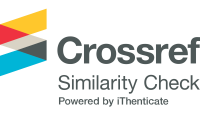Human development and quality of life in scope of smart cities
indicators and scenarios
DOI:
https://doi.org/10.5216/revjat.v6.77747Keywords:
Cidades inteligentes, desenvovimento, classificação, indicadores sociaisAbstract
The volume of contributions regarding smart cities has been gaining space on the urban agenda. This is due, above all, to the changes that have occurred in society and the growing problems that challenge contemporary cities. From this context, considering the movement to classify cities as smart, this article seeks to analyze the issue of human development and quality of life within this approach. In this context, the evaluation and ranking criteria of these cities are also evaluated, considering the maturity index, methodology and methods applied in these classifications. The results and reflections indicate a weak correspondence between smart cities and development, indicating the need for improvement in smart city models today.
Downloads
References
ABREU, J. P. M. de; MARCHIORI, F. F. Ferramentas de avaliação de desempenho de cidades inteligentes: uma análise da norma ISO 37122:2019. PARC Pesq. em Arquit. e Constr., Campinas, SP, v. 14, n. 0, p. 2-13, 2023.
AFONSO, Ricardo A. et.al. Brazilian Smart Cities: Using a Maturity Model to Measure and Compare Inequality in Cities. Conference Paper, may, 2015, p. 230–238.
ANGELIDOU, Margarita. Smart city policies: A spatial approach. Cities, n. 41, 2014, p.3-11.
ALVES, Maria A; DIAS, Ricardo C; SEIXAS, Paulo C. Smart Cities no Brasil e em Portugal: o estado da arte. URBE: Revista Brasileira de Gestão Urbana, n. 11, p. 1-15.
ASSOCIAÇÃO BRASILEIRA DE NORMAS TÉCNICAS – ABNT, https://www.abnt.org.br/smartcities/.
BAHIA, Leandro O.Guia referencial para construção e análise de indicadores: Brasília: Enap, 2021.
BANCO INTERAMENICANO DE DESENVOLVIMENTO – BID. Caminho para as smart cities: da gestão tradicional para a cidade inteligente (Org. BOUSKELA, Mauricio et. al.), BID, 2016.
BERNAL, N. Wilson; ESPITALETA, Keryn L. Framework for developing an information technology maturity model for smart city services in emerging economies (FSCE2). Appl. Sci. 2021, n. 11, p. 1-17.
CAMPOS, Ronaldo. Revista Movimentos Sociais e Dinâmicas Espaciais, Recife, V. 06, N. 01, 2017 (154-174).
CHATELAT. Bernard. Shaping the Society of 2030. UNESCO and NETEXPLO, 2019.
CLAUDEL, Matthew. et. al. Government’s Role in Growing a Smart City. In: ARAYA, Daniel. (Org). Smart Cities as Democratic Ecologies. Palgrave Macmillan: London, 2015, p. 23-34
CLEMENTE, Augusto J. et al. Smart cities: uma revisão de escopo no campo das ciências sociais (2015-2020). BIB, São Paulo, n. 96, ago. 2021, p. 1-28.
CORTESE, Tatiana T, et. al. Tecnologias e sustentabilidade nas cidades. Estudos Avançados, v. 33 n.97, 2019, p. 137-150.
CURY, Mauro J.; MARQUES, Josiel A. A cidade inteligente: uma reterritorialização. Redes - Santa Cruz do Sul: Universidade de Santa Cruz do Sul, v. 22, n. 1, janeiro-abril, 2017, p.102-117.
DAS, Diganta. Smart City. In: (ORG). Anthony Orum. The Wiley Blackwell Encyclopedia of Urban and Regional Studies, 2019.
FAKHIMI, Amir et. al. Sardroud. Smart-city infrastructure components. In: VACCA, John R. (Org.) Solving Urban Infrastructure Problems Using Smart City Technologies. Elsevier: Amsterdam, 2021, p. 17-54.
FEIL, Alexandre; SHREIBER, Dusan. Sustentabilidade e desenvolvimento sustentável: desvendando as sobreposições e alcances de seus significados. Cad. EBAPE.BR, v. 14, nº 3, Rio de Janeiro, jul./set. 2017, p. 667-681.
FIGUEIREDO-FILHO, Dalson B. et. al. Análise de componentes principais para construção de indicadores sociais. Rev. Bras. Biom., São Paulo, v.31, n.1, p.61-78, 2013.
HOLLANDS, Robert G. Will the real smart city please stand up? City, v. 12, n. 3, dec. 2008, p. 303-320.
HUOVILA, Aapo; et. al.. Comparative analysis of standardized indicators for Smart sustainable cities: What indicators and standards to use and when? Cities n. 89, 2019, p. 141–153.
KOBAYASHI, Andrea, et. al. Cidades inteligentes e sustentáveis: estudo bibliométrico e de informações patentárias. International Journal of Innovation, 2017, vol. 5, núm. 1, Enero-Abril, p.76-98.
KORACHI, Zineb; BOUNABAT, Bouchaib. Data driven maturity model for assessing smart cities. ICSDE'18, Morocco. Oct, 2018.
LAI, Calvin M. T.; COLE, Alistair. Measuring progress of smart cities: Indexing the smart city índices. Urban Governance n. 3, 2023, p. 45–57.
MAINKA, Agnes. Smart world cities in the 21st century. Boston: De Gruyter, 2018.
MENDES, Teresa C. SMART CITIES: SOLUÇÃO PARA AS CIDADES OU APROFUNDAMENTO DAS DESIGUALDADES SOCIAIS? Rio de Janeiro. TD Observatório das Metrópoles 011/2020.
MINAYO, Maria C. Construção de indicadores qualitativos para avaliação de mudanças. Revista Brasileira de Educação Médica, 33, 2009, p. 83-91.
MOROZOV, Evgeny; BRIA, Francesca. Cidade inteligente: tecnologias urbanas e democracia. São Paulo: Ubu Editora, 2019.
OCDE - Organização Central de Desenvolvimento Europeu. 2nd OECD Roundtable on Smart Cities and Inclusive Growth, December 2020.
_________________________________________________. OECD. Enhancing the contribution of digitalisation to the smart cities of the future. 2019.
PETROVA-ANTONOVA, Dessislava; ILIEVA, Sylvia. Smart Cities Evaluation – А Survey of Performance and Sustainability Indicators. 2018 44th Euromicro Conference on Software Engineering and Advanced Applications.
RAMOS, Claudia T. Democracy and Governance in the smart city. In: VISVIZI Anna e LYTRAS, Miltiadis D. (Orgs). Smart Cities: Issues and Challenges Mapping Political, Social and Economic Risks and Threats. Elsevier: Amsterdam, 2019, p. 17-30.
Ranking Connected Smart Cities. Urban System. (2015)
Ranking Connected Smart Cities. Urban System (2018)
Ranking Connected Smart Cities. Urban System (2022).
RIBEIRO, Luiz Cesar Q; RIBEIRO, Marcelo G. (Orgs). IBEU: índice de bem-estar urbano. Rio de Janeiro: Letra Capital, 2013.
___________________________________________. IBEU MUNICIPAL: índice de bem-estar urbano dos municípios brasileiros. Observatório das Metrópoles - IPPUR/UFRJ, 2016. Doc. 117 p.
RIBEIRO, Luiz C. Cidade, nação e mercado: desafios societários da reforma urbana no Brasil. In: RIBEIRO, Luiz C. (Org.) A metrópole em questão: desafios da transição urbana. 2. ed. - Rio de Janeiro: Letra Capital: Observatório das Metrópoles, 2018, p. 21-54.
RODRIGUES-BOLIVAR, Manuel P. Smart cities: big cities, complex governance? In: RODRIGUES-BOLIVAR, Manuel (Org). Transforming City Governments for Successful Smart Cities. Public Administration and Information Technology. Springer: Texas, 2015, p. 1-9
SANTANA Eber et. al. SMM: A Maturity model of smart cities based on sustainability indicators of the ISO 37122. International Journal of Advanced Engineering Research and Science – IJAERS, v 6, feb- 2019, p. 13-20.
____________, NUNES, Éldman O. SMM – Sustainnability maturity modell: modelo de maturidade para cidades inteligentes. Tecnia, v.6, n. 1, 2021, p. 119-136.
SICHE, Raul. et.al. Índices versus indicadores: precisões conceituais na discussão da sustentabilidade de países. Ambiente & Sociedade, Campinas v. X, n. 2, p. 137-148, jul.-dez. 2007.
WOLF, Martin et al. Environmental Performance Index. New Haven, CT: Yale Center for Environmental Law & Policy, 2022.

Downloads
Published
How to Cite
Issue
Section
License
Copyright (c) 2024 Jatobá Journal

This work is licensed under a Creative Commons Attribution 4.0 International License.
- Autores mantém os direitos autorais e concedem à revista o direito de primeira publicação, com o trabalho simultaneamente licenciado sob a Licença Creative Commons Attribution 4.0 que permite o compartilhamento do trabalho com reconhecimento da autoria e publicação inicial nesta revista.
- Autores têm autorização para assumir contratos adicionais separadamente, para distribuição não-exclusiva da versão do trabalho publicada nesta revista (ex.: publicar em repositório institucional ou como capítulo de livro), com reconhecimento de autoria e publicação inicial nesta revista.
- Autores têm permissão para publicar e distribuir seu trabalho online (ex.: em repositórios institucionais ou na sua página pessoal) após a publicação inicial nesta revista, já que isso pode gerar alterações produtivas, bem como aumentar o impacto e a citação do trabalho publicado (Veja O Efeito do Acesso Livre).
- Foram feitos todos os esforços para identificar e creditar os detentores de direitos sobre as imagens publicadas. Se tem direitos sobre alguma destas imagens e não foi corretamente identificado, por favor, entre em contato com a revista Jatobá e publicaremos a correção num dos próximos números.














